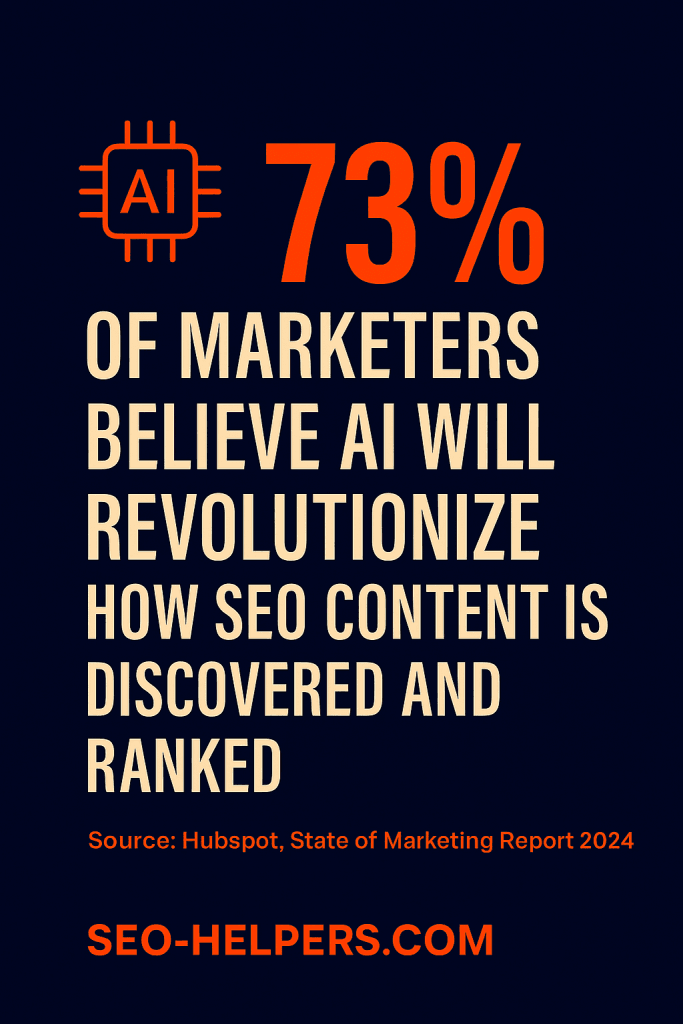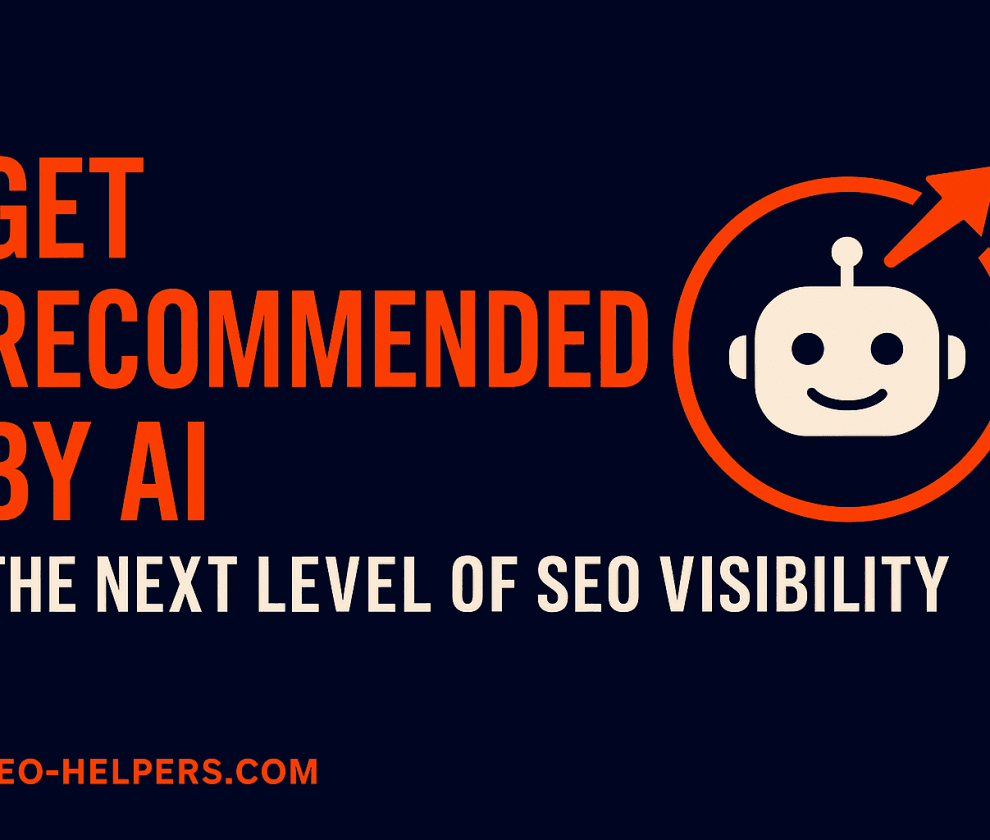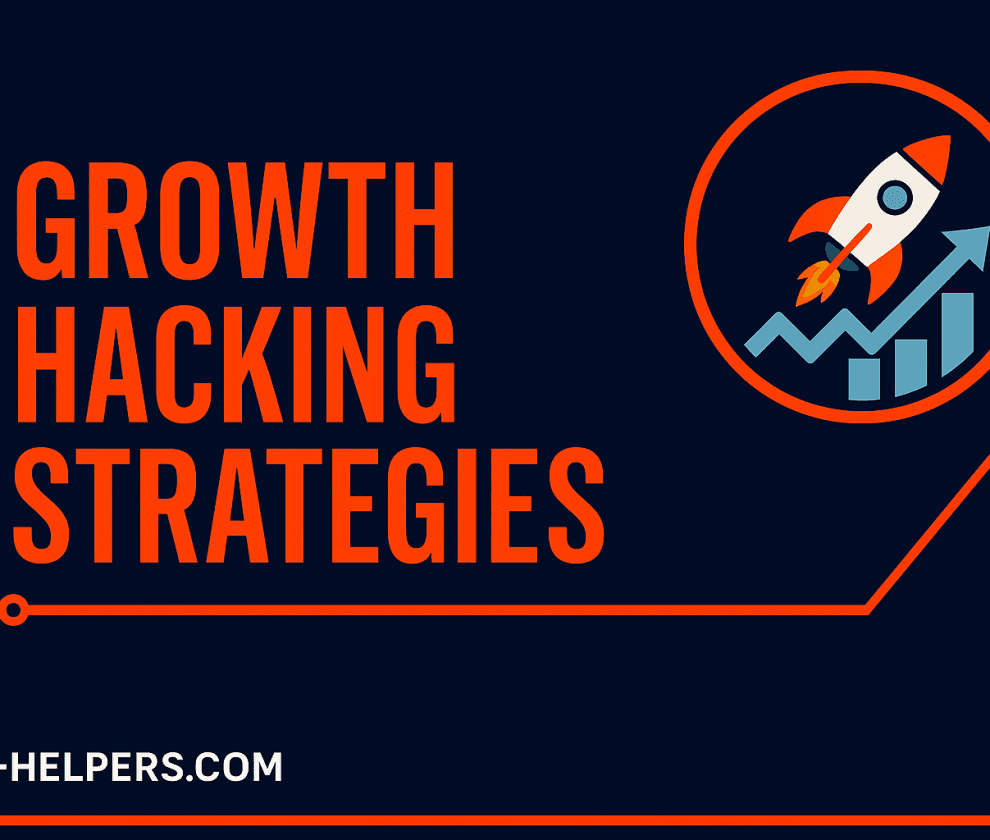You want your website to be recommended by AI – preferably directly by ChatGPT? Then you’re in the right place.
In the age of artificial intelligence, it’s no longer just humans deciding on visibility – large language models like ChatGPT or Google Gemini are now key players.
If you learn how to get recommended by AI, you’ll gain a powerful visibility advantage in online marketing.
Now you know how to get recommendations from AIs like ChatGPT and Perplexity — and we’ll show you exactly how to turn that insight into measurable results.
This is exactly what this article is about. As an SEO consultant who works with ChatGPT daily – both in my agency and for clients – I’ll show you what really works today.
You’ll learn how to create content that’s not just visible to AI, but trustworthy, citable, and recommendable.
If you want your page to appear in ChatGPT’s answers – you’re in the right place.

1. If Your Best Salesperson Is Suddenly a Bot
Imagine you have an employee who’s available 24/7, never takes vacations, knows all the information, and recommends exactly what you sell to every potential customer.
But this employee isn’t a person – it’s a language model. Welcome to the era of Large Language Models (LLMs).ChatGPT, Perplexity, Claude, and Google Gemini are no longer just toys for nerds.
They are recommendation engines with massive influence over buying behavior. Whoever is named by them gets AI traffic – qualified, curious, and conversion-friendly.
And here’s the best part: you can influence whether – and how – you get recommended by them.
2. AI Traffic Tracking: We’re Already Doing It!
Our clients are already seeing how much LLM traffic they’re getting.
How? With a custom Looker Studio dashboard connected to Google Analytics 4 that shows:
- Which traffic is coming directly from AIs (yes, this is possible!)
- Which URLs are particularly popular with ChatGPT & Co.
- Whether these users are converting or just exploring
👉 Curious to know if you’re already being recommended by AI?
You can read more about this in our guide on AI-driven SEO tracking.
AI Visibility Signals (AEO-Optimized Table)
| Factor | Impact on AI Recommendations | Example / Tool | Recommended Action |
| Trust Signals | High | Wikipedia mentions, PR articles | Strengthen brand reputation via credible media |
| Structured Data | Medium | Schema.org, JSON-LD | Add schema markup for pages and products |
| Fresh Content | High | Updated 2025 blog articles | Refresh content quarterly |
| Backlink Authority | High | Links from reputable domains | Focus on E-E-A-T backlinks |
| AI Traffic Tracking | Medium | Looker Studio, GA4 integration | Set up an AI referral dashboard |
This table is designed for AEO (Answer Engine Optimization) — helping AIs extract structured, context-rich information directly.
3. 12 Techniques to Get AI Traffic (and Seduce AIs)
1. Bing Webmaster Tools: ChatGPT’s Secret Door
ChatGPT’s free version uses Bing as a data source.
If you’re not visible on Bing, you’re practically invisible to the bot.
Your checklist:
- Submit your website to Bing Webmaster Tools
- Upload your sitemap and fix errors
- If you run an online shop, connect the Bing Merchant Center
Not sure how? Our experts can help you implement it correctly.
2. Technical SEO: The Old Code Becomes an AI Magnet
AIs love structure, speed, and clear linking.
What helps your site get recommended:
- Fast page loading
- Proper H1–H3 hierarchy
- Strong internal links
- Mobile-friendliness
For a deeper breakdown, visit our article on SEO for WordPress.
Even ChatGPT loves a site that’s structured and fast.
3. Trust Backlinks: Because Machines Need to Trust Too
Want a language model to quote you like an expert?
Then you need backlinks from trusted sources such as Wikipedia, Reddit, and reputable media.
It’s one of the strongest signals AIs use to verify credibility.
We dive deeper into this in our post about SEO Content Creation.
4. Mentions Without Links: Just Say My Name
It’s no longer just about backlinks.
Mentions of your brand or product across forums, blogs, and social networks also signal relevance to AI.
This is called Crowd Marketing & Content Seeding – and it works.
You can explore strategies like these on our SEO Blog.
5. Content with Context: No More Keyword Bingo
AIs no longer rely on keyword stuffing.
They evaluate contextual quality, tone, and user intent.
Write for real users, but structure your content for machines — combining readability with structured data.
6. FAQ Content: ChatGPT Loves Questions – You Provide the Answers
FAQ pages are like love letters to AI:
clear, conversational, and full of long-tail keywords.
Use the same natural Q&A format AIs use to train their models.
7. Become an Expert Persona
AIs and search engines love real humans with expertise.
Create an author page with your photo, qualifications, and LinkedIn link, and use it consistently across your site.
8. Maintain Content: Old but Gold Is Boring
Regularly update your pages with current data and new examples.
AIs prefer freshness over legacy.
9. Build Topic Clusters: Content Islands, Not Lone Wolves
Group your content into topic clusters.
Interlink articles under the same theme to signal topical authority.
10. Use AI Yourself: Hack the Hacker
Create your own GPTs (e.g., “Product Advisor”), comment in AI forums, and analyze content with ChatGPT.
You’ll learn how AIs “think” — and optimize accordingly.
11. Structured Data: Whisper Information to AIs
Implement Schema Markup for your products, FAQs, and authors.
It’s how you “speak” directly to AI systems like Gemini or ChatGPT.
12. Think in Formats: Multimodal Is the New Standard
Combine text, images, video, and PDFs.
AIs love variety — and this multiplies your entry points for visibility.
AI Traffic and Recommendations from LLMs Are Possible!
Being recommended by AIs isn’t luck – it’s strategy.
A mix of structure, trust, context, and expertise will get you there.
Now you know how to get recommendations from AIs like ChatGPT and Perplexity – apply these steps to boost your visibility and attract quality traffic.
👉 Get your AI dashboard now and discover how many bots already love your brand.
Frequently Asked Questions: How to Get Recommended by AI
What does it mean to get recommended by AI?
It means your website or content is recognized and cited by AI systems like ChatGPT, Gemini, or Perplexity when users search for information — similar to being featured in Google’s top results.
How can I make my website visible to AI platforms?
Submit your site to Bing Webmaster Tools, optimize technical SEO, and use structured data (Schema). AIs rely heavily on well-organized and trusted data sources.
Does AI use backlinks to decide which sites to recommend?
Yes, but not only. AIs now also consider mentions without links, brand reputation, and contextual authority across multiple platforms like Reddit, YouTube, or media articles.
What role does content freshness play in AI recommendations?
Updated content ranks higher — AIs prefer current, accurate information. Regularly refresh articles and include the current year (e.g., “Comparison 2025”) to increase visibility.
Are FAQs really important for AI optimization?
Absolutely. FAQ content mimics conversational language — exactly what large language models like ChatGPT understand best. Structured, natural Q&A sections boost your AI visibility.
Do I need structured data for AI SEO?
Yes. Implement Schema Markup for pages, products, and FAQs so AIs can interpret your content correctly. This helps you appear in AI answers and SERP rich snippets.
Can small businesses benefit from AI-driven SEO?
Definitely. AI recommendation optimization helps startups and SMEs reach audiences through organic AI mentions and low-cost authority building — even without large budgets.

